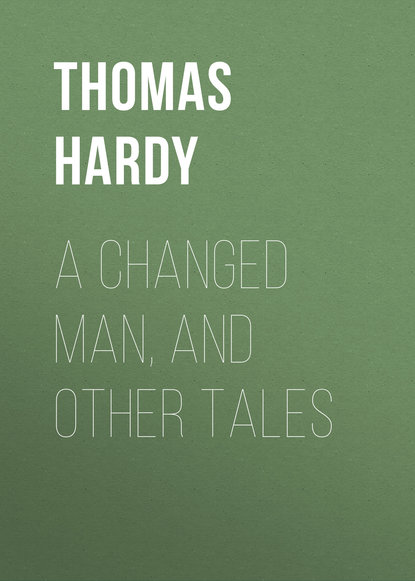По всем вопросам обращайтесь на: info@litportal.ru
(©) 2003-2025.
✖
A Changed Man, and Other Tales
Настройки чтения
Размер шрифта
Высота строк
Поля
Thus she made their acquaintance, and he went out, leaving them together. On examination the poor girls turned out to be not only plain-looking, which she could have forgiven, but to have such a lamentably meagre intellectual equipment as to be hopelessly inadequate as companions. Even the eldest, almost her own age, could only read with difficulty words of two syllables; and taste in dress was beyond their comprehension. In the long vista of future years she saw nothing but dreary drudgery at her detested old trade without prospect of reward.
She went about quite despairing during the next few days – an unpromising, unfortunate mood for a woman who had not been married six weeks. From her parents she concealed everything. They had been amongst the few acquaintances of Heddegan who knew nothing of his secret, and were indignant enough when they saw such a ready-made household foisted upon their only child. But she would not support them in their remonstrances.
‘No, you don’t yet know all,’ she said.
Thus Baptista had sense enough to see the retributive fairness of this issue. For some time, whenever conversation arose between her and Heddegan, which was not often, she always said, ‘I am miserable, and you know it. Yet I don’t wish things to be otherwise.’
But one day when he asked, ‘How do you like ’em now?’ her answer was unexpected. ‘Much better than I did,’ she said, quietly. ‘I may like them very much some day.’
This was the beginning of a serener season for the chastened spirit of Baptista Heddegan. She had, in truth, discovered, underneath the crust of uncouthness and meagre articulation which was due to their Troglodytean existence, that her unwelcomed daughters had natures that were unselfish almost to sublimity. The harsh discipline accorded to their young lives before their mother’s wrong had been righted, had operated less to crush them than to lift them above all personal ambition. They considered the world and its contents in a purely objective way, and their own lot seemed only to affect them as that of certain human beings among the rest, whose troubles they knew rather than suffered.
This was such an entirely new way of regarding life to a woman of Baptista’s nature, that her attention, from being first arrested by it, became deeply interested. By imperceptible pulses her heart expanded in sympathy with theirs. The sentences of her tragi-comedy, her life, confused till now, became clearer daily. That in humanity, as exemplified by these girls, there was nothing to dislike, but infinitely much to pity, she learnt with the lapse of each week in their company. She grew to like the girls of unpromising exterior, and from liking she got to love them; till they formed an unexpected point of junction between her own and her husband’s interests, generating a sterling friendship at least, between a pair in whose existence there had threatened to be neither friendship nor love.
October, 1885.

















